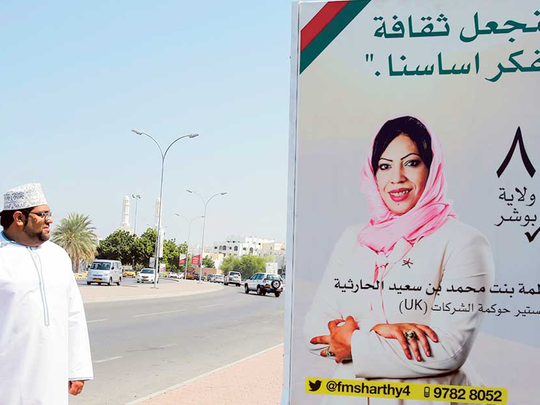
Dubai: Omanis go to the polls on Sunday in a vote for a consultative council with limited powers.
Sultan Qaboos slightly expanded the powers of the Majlis Al Shura in 2011 after unprecedented social unrest when the normally-quiet nation became caught up in protests which swept the Arab world.
Yet, the number of candidates standing for election has almost halved from the last ballot four years ago.
“The outgoing majlis wasn’t able to take advantage of its new powers because of the hegemony of the government on political life,” said Omani analyst Ahmad Ali Al Mukhaini.
The council failed to question any minister or subject a government member to a vote of confidence, and it did not propose any laws in accordance with its new powers, Al Mukhaini said.
Demonstrators in February 2011 demanded improved living conditions and more rights as well as the sacking of ministers they accused of corruption.
Two protesters were shot dead in clashes with security forces.
The discontent was not directed at the sultan personally, who is head of state, prime minister, foreign, defence, interior and finance minister.
As part of a series of measures responding to the unrest, Qaboos decreed that the majlis would be able to revise and propose legislation.
In late 2011, the majlis elected its speaker for the first time and assumed the power to grill ministers.
The majlis was created in 1991 and has a four-year term. It has no role in defence, internal security or foreign affairs.
Candidates plastered the streets with their portraits and focused on socioeconomic issues in the stable nation bordering war-ravaged Yemen.
The sultanate derives 79 per cent of its revenues from petroleum, but with global prices down by roughly half since early 2014 it has projected a budget deficit this year of $6.47 billion (Dh23.7 billion.)
That represents about eight per cent of gross domestic product.
Besides Oman, Kuwait and Bahrain are the only Arab states in the Gulf with parliaments elected by universal suffrage, but all three forbid political parties.
On Sunday, about 612,000 people are eligible to vote at 107 polling stations in 61 districts.
From 596 candidates, including 20 women, a fall of three quarters from the last council polls, they will choose 85 members of the Majlis Al Shura, the election commission said.












